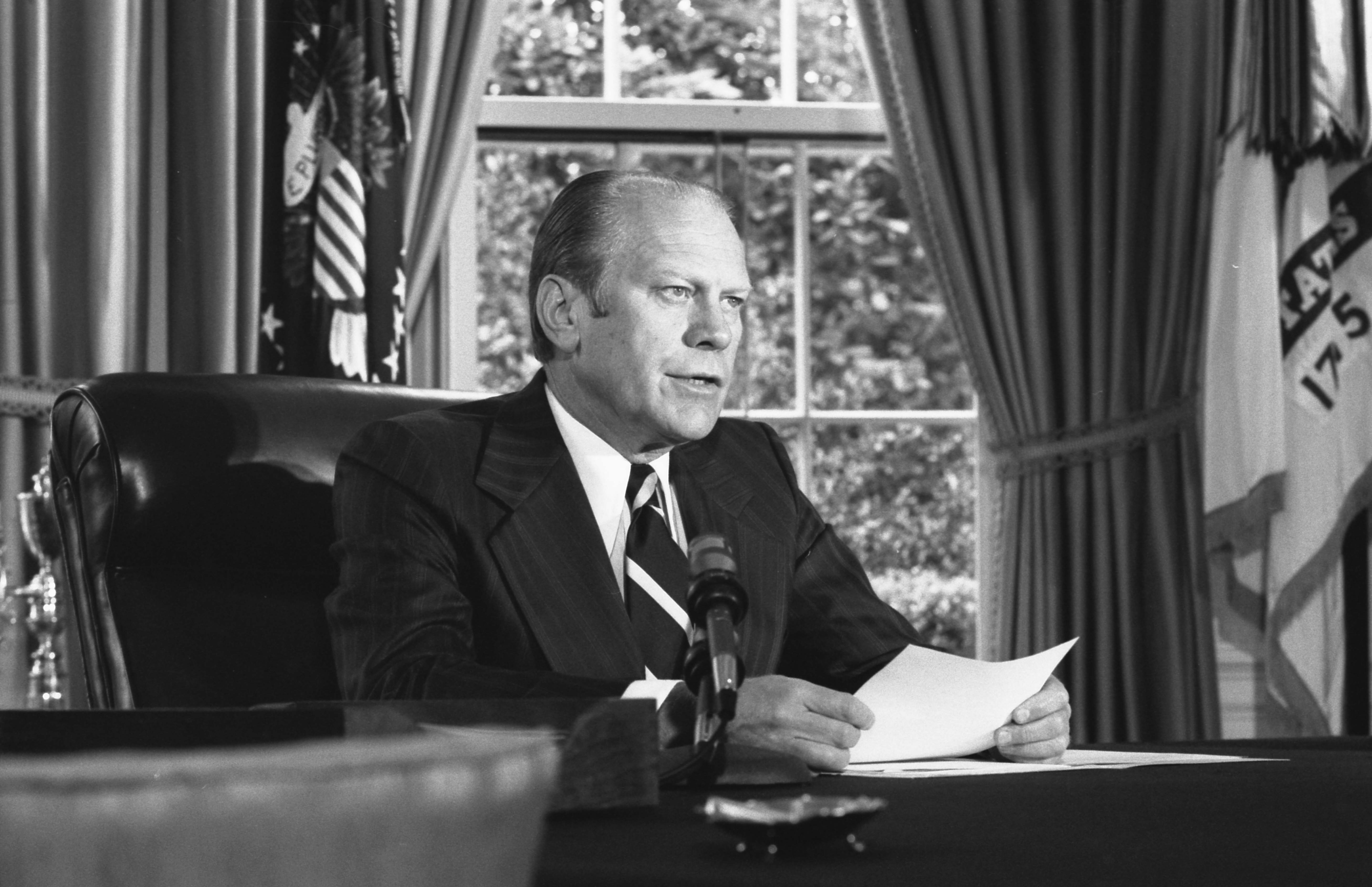The Quiet Hero: Remembering President Gerald Ford, a Leader of Transition
President Gerald Ford is often remembered as the "Accidental President" who stepped into the White House after the resignation of Richard Nixon. However, his presidency was marked by significant accomplishments and challenges that shaped the nation's trajectory. In this article, we will delve into the life and presidency of Gerald Ford, exploring his early life, his rise to power, his notable achievements, and his lasting impact on American politics.
Gerald Ford's early life was marked by humble beginnings and a strong sense of public service. Born on July 14, 1913, in Omaha, Nebraska, Ford grew up in Grand Rapids, Michigan, where he developed a passion for sports and politics. After serving in the U.S. Navy during World War II, Ford attended Yale University and later law school at Yale. His entry into politics began with his service in the U.S. House of Representatives from 1949 to 1973, where he rose through the ranks to become the chairman of the House Intelligence Committee.
Ford's transition to the presidency was a remarkable one. He was appointed as the 38th Vice President of the United States by President Richard Nixon in 1973. When Nixon resigned in 1974, Ford became the 38th President of the United States, making him the first person to assume the office without being elected to it.
The Challenges of Presidencies Past
Ford's presidency was marked by several significant challenges, including the country's economic woes, the ongoing Vietnam War, and the Watergate scandal. When Ford took office, the economy was in recession, and inflation was soaring. He implemented a series of economic measures, including tax cuts and monetary policy changes, to stimulate growth.
The Nixon-Ford Transition: A Move to Healing
Ford's presidency was marked by an effort to heal the nation's wounds. He worked to establish a new era of bipartisan politics, reaching out to Congress and engaging in constructive dialogue with his Democratic opponents. This approach earned him the nickname "Grand Old Man of Washington."
The WHIP Program: Ford's Job Creation Initiative
One of Ford's notable achievements was the creation of the White House Initiative on Domestic Agriculture (WHIP), a program aimed at promoting rural development and providing economic opportunities for American farmers. Established in 1976, WHIP played a critical role in revitalizing the nation's agricultural sector and promoting food security.
The Fall of Saigon and the End of the Vietnam War
Ford's presidency was also marked by the final stages of the Vietnam War. In 1975, the North Vietnamese Army captured Saigon, the capital of South Vietnam, leading to the reunification of the country under communist rule. The fall of Saigon marked the end of the Vietnam War, a conflict that had divided the nation for over a decade.
The Paris Peace Accords: A Lasting Legacy
In 1973, Ford signed the Paris Peace Accords, a treaty aimed at ending the U.S. involvement in the Vietnam War. Although the Accords were later revoked by President Nixon, Ford's efforts to negotiate a peace settlement are still remembered as a significant achievement in American foreign policy.
Ford's Lasting Impact on American Politics
Gerald Ford's presidency may have been marked by transition and challenge, but his impact on American politics has endured. His commitment to bipartisanship and constructive dialogue helped to revitalize the nation's politics and paved the way for future presidents to engage with Congress in a more collaborative manner.
The Civil Rights Act of 1975: A Legacy of Social Justice
Ford's presidency was also marked by significant civil rights legislation. In 1975, he signed the Civil Rights Act, a comprehensive bill aimed at promoting racial equality and protecting the rights of minority groups. This legislation built on the landmark Civil Rights Act of 1964 and reflected Ford's commitment to social justice.
The American Civil Liberties Union (ACLU): A Champion of Civil Rights
Ford's administration was also notable for its support of the American Civil Liberties Union (ACLU), a organization that advocates for individual rights and freedoms. The ACLU played a critical role in promoting civil rights and challenging discriminatory practices, and Ford's support for the organization helped to solidify its position as a champion of social justice.
Conclusion
Gerald Ford's presidency may have been marked by transition and challenge, but his legacy as a leader of the nation has endured. His commitment to bipartisanship, his efforts to promote social justice, and his notable achievements in economic and foreign policy have made him an important figure in American history. As we remember President Ford, we are reminded of the importance of leadership, perseverance, and the ongoing struggle for a more perfect union.
Cinemas 2021
Barron Trump Heightisease
Matthew Gray Gubler
Article Recommendations
- Sabrina Carpenter Weight And Height
- Billieilish Pics
- Daniel John Gregory
- Cassie Parents
- Brooke Monk
- Tyler Hynes Relationships
- Owen Wilsonied
- Annalynne Mccord
- Barron Trump Car
- Leslie Charleson


.jpg)
